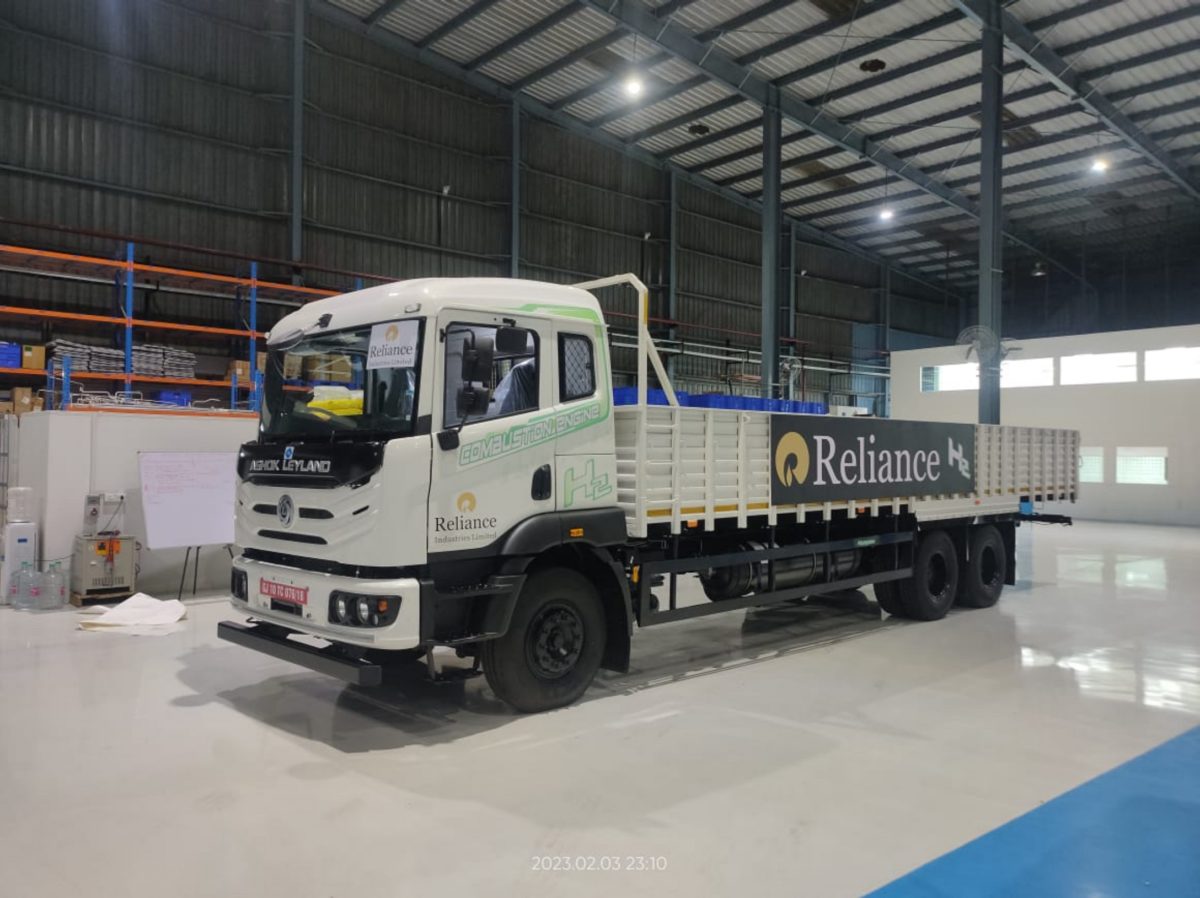Reliance Industries Ltd (RIL), India’s largest private sector company, today unveiled the nation’s first hydrogen internal combustion engine technology solution for heavy-duty trucks. The truck was flagged off by Prime Minister Narendra Modi at the India Energy Week in Bangalore.
The company said the indigenously developed technology solution has the potential to redefine the future of green mobility. The hydrogen internal combustion engine (H2ICE) powered trucks will emit near zero emissions, deliver performance on par with conventional diesel trucks, and reduce noise, with projected reductions in operating costs.
As part of its net-zero carbon emission vision, Reliance with its vehicle partner Ashok Leyland and other technical partners are engaged in developing this unique technology since last year with the first engines running in early 2022.
“Going forward, Reliance will first extensively test and validate the H2ICE technology for heavy-duty trucks before its first commercial deployment at scale initially across its captive fleet. Simultaneously, Reliance is pursuing the opportunity to create an end-to-end hydrogen ecosystem for mobility,” stated Reliance.
This content is protected by copyright and may not be reused. If you want to cooperate with us and would like to reuse some of our content, please contact: editors@pv-magazine.com.









By submitting this form you agree to pv magazine using your data for the purposes of publishing your comment.
Your personal data will only be disclosed or otherwise transmitted to third parties for the purposes of spam filtering or if this is necessary for technical maintenance of the website. Any other transfer to third parties will not take place unless this is justified on the basis of applicable data protection regulations or if pv magazine is legally obliged to do so.
You may revoke this consent at any time with effect for the future, in which case your personal data will be deleted immediately. Otherwise, your data will be deleted if pv magazine has processed your request or the purpose of data storage is fulfilled.
Further information on data privacy can be found in our Data Protection Policy.